As the genocide in Gaza resumes, it becomes ever more clear that the Operation “Al-Aqsa Flood”, launched by the Palestinian Resistance on October 7, and the events that followed, have not only destroyed the prestige of the Israeli army: they completely unmasked the hypocrisy of the West, who is not only silent but accomplice of the unprecedented massacres perpetrated against a defenseless and trapped civilian population, as well as the duplicity of most of the so-called Western “friends” of Palestine, be they political forces, media, Unions or associations.
On the 50th anniversary of the Yom Kippur War, all the factions of the Palestinian Resistance launched a spectacular air, land and sea offensive that succeeded in breaking the siege of Gaza, seizing numerous enemy bases and liberating, albeit temporarily, localities occupied in 1948 —a first in the history of the conflict. In just a few hours, hundreds of occupation soldiers were killed, and thousands of panic-stricken settlers fled (many on foot into the desert), shattering forever the myth of the so-called “most powerful army in the Middle East” and its supposedly infallible intelligence services: the Mossad, Shin Bet and Aman had not even imagined, neither in their most improbable scenarios nor in their worst nightmares, that such an operation was possible on the part of Hamas. Israel had only prepared for it in the north against Hezbollah, which certainly passed on its expertise to the Palestinian fighters. To date, Israel admits to having suffered 1,200 dead, thousands of wounded and over 200 prisoners. This is already the worst humiliation in the history of the “Zionist entity”, inflicted not by a coalition of national armies but by a militia besieged and suffocated for 16 years in a tiny piece of land, the most heavily guarded territory in the world.
But it’s not just Israel’s illusion of invincibility that has been shattered: Israel’s allies, namely the leaders and elites of Western countries, have revealed to the world the full extent of their racism, cruelty and hypocrisy, giving their unconditional support to the occupier and its preposterous claim of self-defense (a right denied to the Palestinians, while, according to international law, this right can only be invoked against a State, in this case Israel, and not against a colonized people) and by blaming Hamas for the escalation and all the casualties, including Palestinian deaths, echoing the rhetoric of the Israeli army. Neither the inflammatory statements by Israeli ministers about Palestinian “human animals” or “There are no innocents in Gaza” (not even the million children, a legitimate target for the occupier), nor the white phosphorus, nor the war crimes of depriving over 2 million Palestinians of water, electricity, fuel, medicine and humanitarian aid, nor the deliberate targeting of hospitals, ordering staff and patients to evacuate in record time or be killed, nor the massive and deliberate bombardment of residential buildings, which has razed entire neighborhoods to the ground and caused over 20,000 deaths, almost half of them children, and tens of thousands of injuries, nor, to cap it all, the ultimatum given to over a million inhabitants of North Gaza to take refuge in South Gaza within 24 hours (with, in the background, efforts to deport the entire population of Gaza to the Egyptian Sinai), an injunction that amounts to State terrorism, materially impossible to carry out (especially with fuel shortages and devastated roads) and which constitutes a crime against humanity, none of this has moved the “civilized West”, which refuses to condemn the occupier and continues to give it its full political, media and military support, vetoing ceasefire resolutions at the UN Security Council. Europe has even restricted, repressed and upright banned demonstrations in support of Palestine, with France going so far as to ban them altogether and consider it an anti-Semitic act to raise a Palestinian flag. After the first moral decay revealed by the war in Ukraine, where the West shamelessly explained that, unlike those of NATO’s wars in the Middle East, the Ukrainian victims were worthy and should move us because they were “like us” (blond with blue eyes), the last fig leaf covering the hideous, truly satanic face of the West has fallen, and is revealed to the whole world in all its abjectness, giving its blessing to the daily butchery of Palestinian men, women and children in the macabre tune of “We stand with Israel”. Behind the cloak of freedom, democracy, human rights and international law, behind the fine suits, perfume and pretensions of refinement, behind the calls to protect civilians and respect humanitarian international law, the rulers of Western countries revealed the full extent of their barbarity, indifferent if not hilarious in the face of the bloodbath, the bodies of shredded toddlers and suffocated premature babies in Gaza.
However, one of the most disgusting aspects of this great unveiling is the reaction of the so-called defenders of the Palestinian cause, who, with very rare exceptions, have allowed themselves to be crushed by pro-Israeli propaganda, whether through weakness, cowardice, fear of political-media vindictiveness or a latent racism that only truly sanctifies Jewish lives, deeming the massive killing of Arabs something normal, if not praiseworthy. Ever since October 7, the media, personalities and organizations considered, or even claiming, to be pro-Palestinian competed with zeal in their communiqués condemning the “terrorist attack” by Hamas and its alleged “atrocities” and “war crimes”, presenting Israel de facto in the position of a victim who would only defend itself (admittedly in a “disproportionate” manner, but fundamentally legitimate), without any shred of evidence (it has been revealed that a great many Israeli civilians were killed by their own troops), and in defiance of the most basic facts of the conflict: Gaza has been the victim for at least 16 years of the supreme crime according to the Nuremberg Tribunal, that is the crime of aggression (blockade is an act of war), not to mention regular assassinations, the colonization of the West Bank, apartheid, ethnic cleansing and the desecration of the Al-Aqsa mosque, all casus belli against which Hamas, the legitimate representative of the people of Gaza, has the legal and moral right to retaliate. The vast majority of the so-called “friends of Palestine” demonstrated their lack of humanity and regard for international law, which enshrines the right of occupied peoples to liberate themselves by all means, including armed struggle.
Here is a small selection of the shameful and ignominious political, media and trade union statements that have provided unforgivable support and even encouragement for the ongoing massacre in Gaza. All the examples below are taken from France, the self-appointed “Cradle of Human Rights” and allegedly less subservient to Israel’s interest than the US or UK, but the same bias (and much worse) can be found everywhere in the “enlightened West”.
La France Insoumise
Jean-Luc Mélenchon’s “La France Insoumise”, or LFI, is France’s main left-wing opposition party, presenting itself as a champion of the rights of minorities (especially Muslims) inside, and of the oppressed peoples outside (especially Palestine). LFI’s initial communiqué on October 7, which caused such a stir in France, was extremely timid. It did not take sides and seemed to consider Israel and Gaza equally to blame: “The armed offensive by Palestinian forces led by Hamas comes against a backdrop of intensifying Israeli occupation policy in Gaza, the West Bank and East Jerusalem. We deplore the Israeli and Palestinian deaths. Our thoughts are with all the victims. The current escalation risks leading to a hellish cycle of violence. France, the European Union and the international community must act without delay to prevent this escalation.” LFI merely called for a “ceasefire” and “the protection of the population”, a “return to the negotiating table” and an active implementation of “UN resolutions”. This statement caused an uproar because it did not explicitly condemn Hamas or use the term “terrorist”, but it must be stressed that it did not condemn Israel either. Jean-Luc Mélenchon’s reaction on Twitter was in the same vein (“All the violence unleashed against Israel and Gaza proves only one thing: violence only produces and reproduces itself. Horrified, our thoughts and compassion go out to all the distraught victims of all this”), simply repeating outdated truisms about the “two-state solution” (it is dead and buried, and no power in the world could resurrect it).
But just as Mélenchon wimped out with the war in Ukraine, condemning Russia as solely responsible for unprovoked aggression and aligning himself totally with NATO, which he had claimed France would leave if he was elected President, LFI quickly gave in to the pack, “condemning the Hamas attack on Israel”, as well as the “massacres”, “abominable acts” and acts of “barbarism” allegedly perpetrated by the Palestinian Resistance (with only the Israeli army’s statements as evidence) and denounced “with the utmost force” its “war crimes aimed at terrorizing civilian populations”, boasting to use the very same words as Israel’s ambassador to the UN. “If our support must be total to the Israeli population, it cannot be unconditional to the Israeli government”, assures Manuel Bompard, coordinator of La France Insoumise. But why would anyone support a largely racist and supremacist people, who have always massively supported the massacres in Gaza? Why should anyone support Netanyahu’s far-right and even fascist government, be it conditionally, instead of just condemning it? Manuel Bompard recognizes Israel’s alleged “right to self-defense” but asks it to be “proportionate”: don’t the Palestinians also have the right to defend themselves, and much more so than the occupier? Hasn’t Hamas, which has caused far fewer Israeli casualties in its whole history than the number of Palestinians regularly massacred by Israel in a matter of days, acted in a “proportionate” manner? This can only be denied if we consider that a Palestinian life is worth less (and x times less) than an Israeli life. And are Hamas’s actions “Resistance”, asks a presenter? LFI bursts into indignation: “Nobody used that expression. It’s a flagrant act of outrageous manipulation, part of the polemics fabricated against LFI.” The NUPES parliamentary group, led by LFI, cowardly joined the minute’s silence for Israeli victims at the National Assembly: LFI claims to have asked for the inclusion of international and Palestinian victims, to no avail, but nevertheless took part in this scandalously one-sided tribute to the “worthy victims”.
Mélenchon crowned this betrayal of Palestine & Palestinians with a statement condemning Hamas not only for its attack (while admitting that there was as yet no evidence of massacres in the kibbutz, and pretending to ignore the fact that Israeli settlers are notoriously over-armed), but also for its very identity as a politico-religious movement, even though Hamas was elected in democratic elections (Jimmy Carter himself was there and testified to it), and its armed resistance against Israel is overwhelmingly supported by Palestinians and Arab-Muslim populations in general. In recalling his hatred of all theocracies, Mélenchon didn’t even notice the contradiction of not including Israel, a State founded on an amalgam between politics and religion, with a ruling coalition comprising fanatical Talmudists. Mélenchon also stressed that his refusal to use the term “terrorism” was purely from a legal perspective, and because “war crime” is worse than “terrorism”, and would allow Palestine to be dragged to the ICC (sic): “Hamas has unleashed a war operation against Israel. If we want war crimes to be tried and prosecuted, we have to call them by their name. This is possible at the International Criminal Court.” This, then, is LFI’s priority: not to erect a Palestinian state, but to drag the Palestinian Resistance (along with Israeli leaders, as if any White was ever condemned at the ICC) before the courts.
In short, La France Insoumise has abjectly submitted to the dictates of the pro-Israeli doxa, and has even outbid it, while presenting itself as sensitive to the Palestinian cause, in order to eat at all the racks. LFI only claims a position of dissidence to “keep the votes of the bearded” (and veiled) Muslims, as the odious Dupond-Maserati, Macron’s Justice Minister, put it. LFI’s deep-rooted racist and Islamophobic reflexes are further demonstrated by the disgusting fate it bestowed upon Taha Bouhafs, mercilessly defamed and crushed by the Party because he was an Arab true to his roots.
Mediapart
“The images are unbearable”. So begins an article on the front page of the October 10 issue of Mediapart, France’s main online “independent” & opposition media who unveiled so many scandals of Macron’s government. This edition was neither devoted to the Israeli massacres in the Gaza Strip, the destruction of hospitals and residential buildings, the use of white phosphorus against densely populated civilian areas (a war crime), nor to the unprecedented humanitarian crisis announced by the deprivation of drinking water, electricity, medicine, gas and fuel imposed on over two million Gazans trapped and with nowhere safe to take refuge, in order to force their deportation to Egypt (a crime against humanity). God forbid. Mediapart was talking about these infamous “Hamas war crimes”. And the “unbearable” images in question were not those of decapitated Palestinian babies, the bodies of infants and children pulled from the rubble of Gaza, the heart-rending farewells of a father, mother or child to loved ones killed in the bombardments, of Palestinians burned (dead or alive) in Gaza and the West Bank, of their lifeless bodies desecrated by acts of mutilation or settlers who completely undress the corpses of Palestinians and film themselves urinating on them, but simply of an Israeli woman captured by Hamas. The article, entitled “Civilian hostages at the hands of Hamas: ‘Unheard of in Israel’s history’”, continues: “In a video shared on the social network X and filmed on Saturday October 7 shortly after the Hamas terrorist attack on Israel, a woman, displayed like a trophy, lies face down, inert and almost naked, in the back of a pick-up truck. A Palestinian militiaman pulls her hair, another spits on her. Her name is Shani Louk. Her family recognized her by her hair and tattoos.”
Mediapart clearly adopts the Israeli point of view, speaking of an “Israeli 9/11” and a “bloodbath”, based solely on statements by the Israeli army (even though images showed that Israeli policemen were firing from the Nova rave party, which contradicts the idea of a gratuitous massacre in favor of that of civilians “caught in the crossfire”, not mentioning the reports about Israeli civilians butchered by their own troops from Apache helicopters in the implementation of a “mass Hannibal” directive). And Mediapart spoke of “unbearable images” when the only thing truly “unbearable”, for the Israeli society, is the end of the myth of the Israeli army’s ability to protect its settlers. Moreover, Mediapart insidiously peddles the widely-propagated idea that Shani Louk was raped and executed, 3 days after the images went viral. However, she was already scantily clad during the rave party in the Negev desert, and her family had claimed to have received proof that she was still alive. Still, Mediapart made the choice to echo the rhetoric of the Israeli government by speaking of a “terrorist” attack (a term never used for Israeli crimes, of a much bigger magnitude), propagates the trope of Arabs raping white women and grossly lies by saying that a Hamas fighter spat on her (it’s quite clear from the video in question that it’s a child doing it, which is regrettable, but very different from what is said). Significantly, far-right Marine Le Pen made exactly the same statements in the French National Assembly, and this worthy daughter of her father (Jean-Marie Le Pen was notoriously involved in torture in French Algeria) also retains only this striking image of the “colonist” as prisoner of the “natives”: Mediapart, media of Edwy Plenel (whom Mitterrand described as an agent of the United States), thus followed the footsteps of the French and Israeli far right, giving full credit to the occupation army’s version of events despite the absence of proof and huge record of lies broadcasted by the IDF, and highlighting images that are completely insignificant when compared to the daily life of Palestinians under occupation, with its series of executions, torture, well-documented rapes of Palestinian women prisoners, etc., at a time when Israel is committing its greatest massacre of civilians in Gaza ever. Much later in the article, without any strong epithet or condemnation, it will be mentioned coldly that “No electricity, no food, no water, no fuel” will be allowed in the Gaza enclave, and that the Israeli Defense Minister has stated “We are fighting animals and we act accordingly”. On this subject, Mediapart refrained from emotionally-charged comments such as those used on the Israeli side (“unbearable”, “Plunged into dread since that fateful Shabbat day”, “traumatic as these are”), showing clearly on which side its heart beats (on the side of “humans”, not “animals”) and where its priorities lie.
Worse still, Mediapart has also published an article entitled “Massacres in two kibbutzes: ‘They murdered children and the elderly in cold blood’”, presenting as if it were a proven fact the worst atrocities attributed to Hamas, once again based solely on statements by the Israeli army. The following IDF figures are quoted without questioning their statements: “an Israeli army official” (“It’s something more like a pogrom from our grandparents’ time”), “Major General Itai Virov” (“It’s not a war or a battlefield, it’s a massacre”), “Colonel Olivier Rafowicz, an Israeli army spokesman” (“What’s happening now in Israel is the discovery of the atrocity of massacres committed over two days by Hamas Islamist terrorists, including the carnage at Bee’ri kibbutz. Hundreds of men, women and children were slaughtered, torn to pieces and decapitated by men mad with hatred. This was repeated in dozens of places in Israel”), “Yossi Landau, Zaka commander” (“It’s incredible the number of victims we saw, what was done to these families, these children. I’ve been doing this job for thirty-three years and I’ve never seen anything like this”), along with “Israeli Defense Minister Yoav Galant” (“All those who came to behead, to murder women and Holocaust survivors will be annihilated at the height of our strength and without compromise. What we saw in the cities was a massacre”) and the Israeli (I24News) and Western (CNN) journalists selected by the army for its propaganda, who meekly peddled (then retracted) the story of the 40 beheaded babies (“They shot everyone, they murdered children, babies, old people, everyone, in cold blood.”).
The conclusion of this article is in the same vein. At the end of the last section, entitled “Pure Evil” (sic), we read:
“From the White House, U.S. President Joe Biden denounced the atrocities committed by Hamas in communities around Gaza, speaking of ‘pure evil’. ‘The brutality of bloodthirsty Hamas reminds us of the most horrific acts of ISIS, he said. This is terrorism which, unfortunately, is not new to the Jewish people. This attack evokes painful memories, the scars of a thousand years of anti-Semitism and genocide’.”
Never mind that there are no images or videos to back up these assertions, reminiscent of the worst Nazi diatribes. And there is absolutely no mention of the crucial fact that in Israel, relentless military censorship filters out the slightest publication in the media, even in times of “peace”. No doubt is expressed either as to the veracity of these claims, even though the first sentence of the article did indeed state that the kibbutz had been liberated after bitter fighting (“It was only on Monday, after two and a half days of fighting, that Israeli troops were able to regain control of the kibbutz in the locality of Kfar Azza”), without ever mentioning the possibility that some Israelis may have been killed in the exchange of fire or in the Israeli strikes. Many Israeli survivors did claim that their own forces were responsible for the deaths of many settlers, and the Hannibal Doctrine, according to which Israel would rather kill its own citizens than let them fall alive into the hands of Hamas, is well known, and was mentioned in the Mediapart article quoted above (it was referring to the potential targeting by the IDF of Israeli hostages kept in Gaza, not to the October 7 massacres). Thus, trampling on journalistic ethics and disregarding the enormous responsibility placed on the media at such a critical time, Mediapart had no qualms about acting as the spokesperson for the Israeli army as it was preparing to commit an unprecedented massacre in Gaza, peddling lies such as the one about the beheaded babies, which can only contribute to public acceptance of Israel’s “reprisals” against the “pure evil” that needs to be rooted out of Gaza. This hoax was endorsed by Biden in the above speech (he claimed to have seen pictures), but has since been retracted by the White House, which has clarified that no proof was provided, and that Biden had simply repeated the Israeli army’s statements (as he did again for the deadly strike against the Al-Ahli hospital in Gaza that killed hundreds of civilians, attributed by the occupier to an Islamic Jihad rocket, as if the Resistance in Gaza had missiles able to cause such a huge level of destruction). Incidentally, the names of Israeli victims published by Haaretz do not include any babies, but the damage was done. And to this day, Mediapart doesn’t consider it necessary to publish a retraction (any more than it ever repented its despicable slander against Julian Assange). Mediapart has even gone so far as to censor comments questioning the reality of the facts alleged in the article and the irresponsibility of a newspaper to publish them without any verification in such a context, deleting them by the dozen without even taking responsibility for this censorship, which is attributed to the authors of the said comments (the only mention is “This comment has been unpublished by its author”).
The icing on the cake: these two articles were written by a certain… Rachida El Azzouzi. And to think that some people say that France is racist and that Arabs can’t succeed while staying true to themselves…
CGT
The General Confederation of Labour (CGT) is a national trade union center. It is the first of the five major French confederations of trade unions, and is deeply rooted in France’s history of social struggles and international solidarity. Here is how the CGT reacted to the events of October 7:
“On Saturday October 7, Hamas unleashed an offensive of unprecedented violence, attacking a large number of civilian targets. The CGT condemns this escalation, which bereaves and targets millions of Israeli and Palestinian civilians alike, and does a disservice to the Palestinian cause.”
These are the first words of the communiqué issued by the CGT on October 9, entitled “For a just and lasting peace between Israel and Palestine!” It is a veritable concentrate of cowardice, lies and ignominy.
“Unprecedented violence”? But everything Hamas has done, even taking into account the crimes attributed to it without any proof, Israel has been doing far worse for decades! Do Israeli lives count for more than Palestinian lives? Why speak of “unprecedented violence” or “a milestone crossed”, when Palestine is, in the worst case scenario, merely reproducing in a homemade way what the occupation has been doing to it on an industrial scale since 1948?
So it’s “Hamas escalation” that targets “millions of Israeli and Palestinian civilians alike”. Israeli civilians come first, of course, given the highly unequal exchange rate between Jewish and Arab lives, but even the Palestinian victims would not be targeted by the occupation’s aviation and artillery, but by Hamas itself?! It is pure Israeli rhetoric to state so bluntly that Hamas is responsible for all the deaths in Gaza, be it via the myth of “self-defense”, “human shields” or other such outrageous lies.
Finally, from the comfort of its offices in the Paris region, the CGT has the unheard-of arrogance to decree what serves or “does a disservice to the Palestinian cause”, demonstrating a mentality imbued with colonial smugness and haughtiness.
The final paragraph of the CGT’s confederal communiqué restates a few facts that should have been the starting (and only) point:
“The Israeli government, dominated by the far right, openly conducts a policy of apartheid and inexorably pursues the colonization of the West Bank and East Jerusalem, in defiance of all international decisions, closing the door more and more to any peace process, while Benyamin Netanyahu calls for the razing of the cities of Gaza.
The CGT recalls that the Human Rights Council of the United Nations, in a report published on Tuesday June 7, clearly condemns Israel’s policy on the situation: ‘The conclusions and recommendations related to the root causes of this conflict point overwhelmingly to Israel, which we analyze as an indicator of the asymmetrical nature of the conflict and the reality of one state occupying another’.”
The CGT, which blamed Hamas for this “escalation” and its consequences throughout its communiqué, is therefore in total contradiction. But it’s not the demand for coherence, or morality, that takes precedence, but rather the demand to “howl with the wolves” and condemn Hamas.
On October 18, the CGT issued a new communiqué entitled “Stop the bloodbath in Gaza immediately”. Despite this encouraging title, its content is just as distressing as that of the previous communiqué, if not more so. It begins as follows:
“For the past 10 days, the people of Gaza have been subjected to terrible strikes in retaliation [sic] for the acts of terror perpetrated by Hamas on October 7. The CGT has unambiguously condemned this policy of making things worse, which does a disservice to the Palestinian cause. It is not surprising that Hamas should make this type of choice, as it has been violating women’s rights and multiplying arbitrary arrests for almost 20 years in Gaza, imposing a double penalty on the enclave, which has been held under an outrageous blockade by Israel since 2007.”
While the population of Gaza had been pounded and genocided for over 10 days, with thousands dead, tens of thousands wounded and hundreds of thousands displaced, the CGT devoted its entire opening tirade to condemning Hamas, with only the word “outrageous” condemning Israel for its blockade at the very end of the paragraph. The same accusatory inversion is at work, via a reversal of chronology that places Gaza in the position of aggressor rather than victim (in a way legitimizing reprisals), with “terrible strikes” on one side and “acts of terror” on the other (accusing Israel of terrorism is out of the question, even when they threaten 1 million inhabitants with annihilation if they don’t evacuate northern Gaza at once). The “policy of making things worse” is not that of Netanyahu’s far-right government, which has left the Palestinian population with no other choice but armed struggle, but that of Hamas, which moreover “violates women’s rights”: is this a reference to the wearing of the veil, a notorious sign of backwardness for the CGTists, even when it is freely worn? All that’s missing is a reference to the rights of the non-existent LGBTI+ community in Gaza to complete the picture (on November 8, the CGT did choose a LGBT flag to call for a demonstration for a ceasefire in Gaza…). And we find once again this major concern of the CGT for what serves and disserves the Palestinian cause, which is one of the priorities of their Montreuil offices: as we read at the end of the communiqué, “The CGT is currently working to build the widest possible arc of forces in favor of an immediate ceasefire and a just and lasting peace for this region of the world.” Under such conditions, the people of Gaza are truly ungrateful for having launched the October 7 offensive, which threatens to scupper the plans for a just and lasting peace skilfully matured, between two packs of beer, by the CGT Union’s experts. All the Palestinians had to do was wait a few more decades and the job was done, what the hell…
But the worst is yet to come. A few paragraphs later, we read:
“The CGT demands that France, a permanent member of the UN Security Council, immediately mobilize the resources of its diplomacy to obtain an immediate ceasefire and prevent the announced annihilation of northern Gaza by a large-scale land, sea and air offensive. The CGT also demands that everything possible be done to help the civilian population. The generosity and exceptional measures (including temporary protection) rightly implemented to help Ukrainians fleeing the war must also be extended to the Palestinians!”
Not only is there no explicit condemnation of this crime against humanity in the making, namely the deportation of the population of Gaza to the south and then to the Egyptian Sinai desert, but after a timid request that France should “prevent” it, the CGT calls for this deportation to be facilitated by the reception of the expelled Palestinian populations, in the same way that the Ukrainian populations were massively welcomed in Western countries following Russia’s intervention.
The CGT, which yesterday supported the Algerian National Liberation Front (FLN) —at a time where the risk was not an indictment for “apology for terrorism”, but indeed “terrorism” and “high treason”, with the death penalty not been abolished yet—, has changed: today, its General Secretary Sophie Binet denounces Hamas as “terrorist” (she had also supported the banning of the abaya dress in schools…). These positions demonstrate once again that, despite cosmetic differences, the CGT is aligned with NATO policy and that of Western capitals, a position that has only been confirmed since it left the World Federation of Trade Unions (composed of Southern countries) in 1995.
To put the finishing touches to this sad picture of solidarity with Palestine in France, it should be pointed out that French associations, even Muslim and pro-Palestinian ones such as the AFPS (France Palestine Solidarity Association, whose first press release was very respectable), also threw stones at Hamas. The UJFP (French Jewish Union for Peace) at first issued some very good statements, but eventually gave in to the anti-Hamas mob. Many rallies where only calling for a ceasefire, with the majority of speakers competing in their zeal to condemn “Hamas atrocities” as if it all started from there.
Why did this happen?
Over and above the overtly Zionist political and media pressure and its unbearable bludgeoning of the Israeli narrative, as well as the very real judicial threats of charges of apology for terrorism (the New Anticapitalist Party has been indicted for “apology of terror” because of its initial exemplary press release, later retracted, along with two CGT members for their local communiqués or tweets), which may explain the blindness and/or cowardice of all these voices, we must remember that the issues at work in occupied Palestine largely overlap with those of the history of colonialism. In particular, we need to remember the ambiguous position of so-called left-wing or progressive Western forces in the face of national liberation struggles against their own countries. An extract from Jean-Paul Sartre’s Preface to Frantz Fanon’s Wretched of the earth, dedicated to the Algerian War, expresses all that needs to be said about the “support” of LFI, Mediapart, the CGT and so many others for the Palestinian cause:
“The Left at home is embarrassed; they know the true situation of the natives, the merciless oppression they are submitted to; they do not condemn their revolt, knowing full well that we have done everything to provoke it. But, all the same, they think to themselves, there are limits; these guerrillas should be bent on showing that they are chivalrous; that would be the best way of showing they are men. Sometimes the Left scolds them: ‘You’re going too far; we won’t support you any more.’ The natives don’t give a damn about their support; for all the good it does them, the French Leftists might as well shove it up their a**es. Once their war began, they saw this hard truth: that every single one of us has made his bit, has got something out of them; they don’t need to call anyone to witness; they’ll grant favoured treatment to no one.
There is one duty to be done, one end to achieve: to thrust out colonialism by every means in their power. The more far-seeing among us will be, in the last resort, ready to admit this duty and this end; but we cannot help seeing in this ordeal by force the altogether inhuman means that these less-than-men make use of to win the concession of a charter of humanity. Accord it to them at once, then, and let them endeavour by peaceful undertakings to deserve it. Our worthiest Western souls are racist. (…)
This is the end of the dialectic; you condemn this war but do not yet dare to declare yourselves to be on the side of the Algerian fighters; have no fear, you can count on the settlers and the hired soldiers; they’ll make you take the plunge.”
Yes, this half-hearted support for Palestine of the Western Left is all about racism (and even Islamophobia). The martyrdom of the Palestinian population, which has been going on for decades, has never moved “our worthiest Western souls” as much as the Gaza uprising against the soldiers and settlers, even though the violence of Hamas and the number of Israeli victims are far less than what the occupier regularly inflicts on the Arab population. The West shed more tears on the fake story of 40 decapitated Israeli babies than on tens of premature Palestinian infants suffocated to death by Israel in Al-Shifa Hospital: the mere illusion of a Jewish death is worse, so much worse than the real, actual and horrendous death of thousands of Palestinian children, as if they were meant to die before they come of age. As for “taking the plunge” and supporting the Palestinian Resistance, it’s likely that our “worthiest souls” will never do so, given our indifference to the massacre of almost ten thousand children, a single strike against a hospital resulting in over 500 civilian casualties, the assault on hospitals, the imminent risk of death hanging over hundreds of thousands of Palestinians trapped and deprived of drinking water, food, electricity, fuel and medicine, and the specter of a mass exodus, which have not shaken our conviction that any declaration of “support” for Palestine must begin with a condemnation of the “war crimes” of Hamas, the “terrorist” organization that is “holding hostage” the people of Gaza (no matter how much this contradicts the facts, it gives a clear conscience).
Norman Finkelstein, son of Auschwitz and Warsaw Ghetto survivors and a world authority on the Palestinian question, contextualized and commented on these positions, and affirmed genuine support for the Palestinian struggle. Such a courageous stance is so rare that it is worth quoting at length:
“My parents were in the Warsaw Ghetto up until the uprising in April 1943. The uprising in the ghetto is normally regarded as a heroic chapter, or the only heroic chapter during the Nazi extermination. And when the anniversary came around, probably around 20 or 30 years ago, Amy Goodman of Democracy Now!, she interviewed my mother about the Warsaw Ghetto Uprising. And my mother was very – let’s just put it this way – she was very skeptical of all the praise that was being heaped on it. She said, number one, we were all destined to die, so there’s no great heroism in trying to resist when there was no other option available, we were going to be deported and exterminated. Number two, she said that the resistance was vastly exaggerated, which in fact was true. It was a very minuscule resistance to the Nazi occupation of Warsaw at the time. And so I saw that Amy Goodman, her face began to drop because my mother was diminishing what was supposed to be a heroic chapter or the only heroic chapter during that horrific sequence of events. So my mother said, excuse me, Amy asked her, “was there anything positive from what happened?” And I remember my mother commenting, first she talked about the ingenuity, the ingenuity of the fighters in the Warsaw Ghetto. And she described how they had no implements. They developed this very complex catacombs – what were called “bunkers” in the ghetto – using their bare hands. And I remember her use of that word ingenuity. And then when I saw or witnessed or read about the ingenuity of the people of Hamas, the most surveilled place on God’s earth. Every nook and cranny of Gaza is under 10,000 different Israeli surveillance technologies. And yet they managed, amidst all this, to block all of the surveillance and conduct this operation — I pay tribute to that ingenuity! I pay tribute to the resistance of a people with literally, or almost literally, their having figured out a way to resist this concentration camp imposed on them or overcome it…
And I have the same sense of wonderment – I am still totally baffled – that Hamas figured out a way to tribute the human ingenuity and that spirit of resistance, and all the powers that each individual can summon forth in that struggle for resistance to defeat a very formidable or impose a defeat, even if it turns out not to be longstanding, to impose a momentary defeat on those racist supremacists and Übermenschen who just don’t believe the Arabs are clever enough, smart enough, have enough ingenuity to prevail.
As to the question of the civilians and the civilian deaths, I don’t know what happened. I’ll patiently listen and I will as fairly as I can parse the evidence as it becomes available. I’m not gonna put a “but,” I’m not gonna put a “however,” I’m just gonna state the facts. Number one, I was rereading the other day Karl Marx’s Civil War in France, and that describes the period when the Parisian workers come to power in Paris, form a commune, and the government, the official government, was assassinating prisoners of war, hostages. and it became so brutal that the Communards, as they were called, they took about 50 or 60 hostages. The government wouldn’t relent, it wouldn’t relent, and the Communards killed the hostages.
Karl Marx defended it. He defended it. He said “it was a matter of… They were being treated with such contempt, the Communards.” The Communards were begging for a way to peacefully resolve this. They asked for one of their leaders, Blanqui, to be returned to them, and the government wouldn’t. You know, John Brown, he didn’t have a clean record. When he was in a battle in Kansas over a place called Osawatome, he killed hostages. He did. And when he was hung, it was very hard to find a person to defend him. Actually, I recently learned from reading something by Cornel West, one of the few people who spoke on his behalf was Herman Melville, the author of Moby Dick, which I wasn’t aware of. But he killed hostages, and he was hung and very few rose to his defense, but before you knew it, the Civil War came along. And, one of the marching songs in the Civil War was “John Brown’s body lies a-mouldering in the grave.” History’s judgment can be very different than the momentary judgment.
It is so appalling, it’s not just the despiriting, it’s so appalling, the reaction of all of these cowards and careerists and scum who use their microphones called Twitter to just denounce the Hamas attack. Most of the Hamas militants, probably the ones who broke through the fence, it’s their first time out of Gaza because you assume they’re mostly in their 20s. The blockade has gone on now for 18 years. They grew up in a concentration camp. They want to be free. One of the natures of the current technology is they get to see on the screen all these people walking free. They want to be free. They joined Hamas, they volunteered. Yes, by international law, they constitute combatants. Do I think they’re legitimate targets because they’re combatants? You’ll never convince me. You will never convince me.
I know what the law says. I know what I’m legally obliged to say. I know what as a scholar or reported scholar I’m supposed to say. But, are you going to convince me a person who grew up in a concentration camp and wants to breathe free air, is – to use the language of international law – a legitimate target, I can’t do it. I cannot. Now, people are going to say, “you’re a hypocrite, you say you uphold international law, you know the fundamental principle of international law is the principle of distinction. Now you’re contradicting yourself.” Yeah, I’ll admit it. I don’t think legal formulas can capture every situation. And I don’t believe a child who was born into a concentration camp is a legitimate target. If he, in this case, it is he, if he wants to be free. I can’t see it.
Now, how far are they allowed to go in order to break out of that camp? How far are they allowed to go? I think that’s a legitimate question. But here I’ll give you an example. In 1996, the International Court of Justice was asked to deliver what’s called an advisory opinion. The question put to the court was this, is the use or threat of use of nuclear weapons illegal under international law? Is the use or the threat of use of nuclear weapons illegal under international law? Now, as all of you know, the fundamental principle of the laws of war is the distinction between civilians and combatants, between civilian sites, a military base, and so forth. So insofar as nuclear weapons by their inherent nature are unable to distinguish between civilians and combatants, civilian sites and military sites, insofar as they inherently can’t do that, the question obviously arises, are they legal under international law?
So there was a huge Supreme Court I.C.J. deliberation on this question, and their conclusion was that under almost all circumstances, the use of nuclear weapons was illegal under international law for the reasons just stated. However, the court said there’s one area where we can’t decide. And the area where we can’t decide, the court said, was what if the survival of a state was at stake? Namely, what if a country faced the prospect that an attack would come at the price of the disintegration of the state? And the I.C.J. said, well, maybe if a state, its survival was at stake, maybe the use of nuclear weapons might be justified. Now bear in mind, the I.C.J. did not deliberate on the survival of a people. It deliberated on the survival of a state. And so I say, if the International Court of Justice – the highest judicial body in the world – couldn’t decide whether you have the right to use nuclear weapons to defend the survival of your state, then I would say you clearly have the right to use armed force in order to protect the survival of your people. So, by current international law standards, I find it very hard to condemn the Palestinians, whatever they did. I find it very hard.
When I see the Alexandria Ocasio-Cortez, the Ilhan Omars, the Bernie Sanders, when they “condemn” the revolt of the inmates in the concentration camp. “Israel has the right to defend itself when the inmates breach the walls of the camp.” I spit on them. They nauseate me. But unfortunately, you can count on the fingers of one hand – and even less than the fingers in one hand – the number of people who showed any heart, any soul, any compassion for the God-forsaken people of Gaza.”
It is interesting to note that all these betrayals of the Palestinian cause are taking place at a time when, in the eyes of Western opinion, steeped in centuries of prejudice about the “superiority of the White man” and decades of Hollywood propaganda about the presumed supremacy of American armies and their allies, Gaza is about to be annihilated, its population about to undergo a mass and definitive deportation, and the Palestinian cause is about to breathe its last. We can only imagine the chorus of howls, cries and vociferations that will emanate from the capitals of the “civilized West” on the day when the forces of the Axis of Resistance (Iran, Iraq, Syria, Yemen, Hezbollah…) enter the stage for the Great War of the Liberation of Palestine, which will inevitably end with the exodus of 6 million Zionist settlers to Europe and America, on the model of the end of French Algeria. On that day, which is much closer than most people imagine, the deafening silence in the face of the imminent total ethnic cleansing of the more than two million Palestinians in the Gaza Strip, and the completion of that of the three million Palestinians in the West Bank, will be replaced by a thunder of enraged and impotent recriminations, threats of war and perhaps Armageddon if Israel is not saved. But at the end, when Palestine and its allies are victorious and settlers are forced to leave, all the hate speech about immigrants and the need to “remigrate” them whence they came from will turn into a bitter rivalry to welcome Jewish “refugees” expelled from the former State of Israel, as we saw during the war in Ukraine.
In a way, this situation is to be welcomed. It’s just as well that the masks are coming off. The Palestinian cause is too sacred for cowards, opportunists and hypocrites to claim to be among its defenders during the struggle, and to pretend to have worked for it, after the destruction of Israel, with their declarations of “support”. It is necessary that impostors be expunged from the ranks of the true defenders of the Palestinian cause, and that only its sincere supporters remain. This is perhaps the last condition for its Liberation.
The post
Gaza: The Masks are off first appeared on
Dissident Voice.
This post was originally published on Dissident Voice.

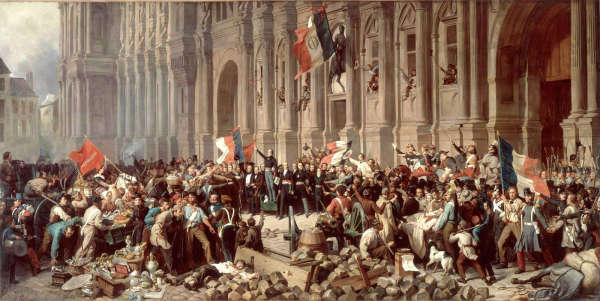


 The Smell of Money
The Smell of Money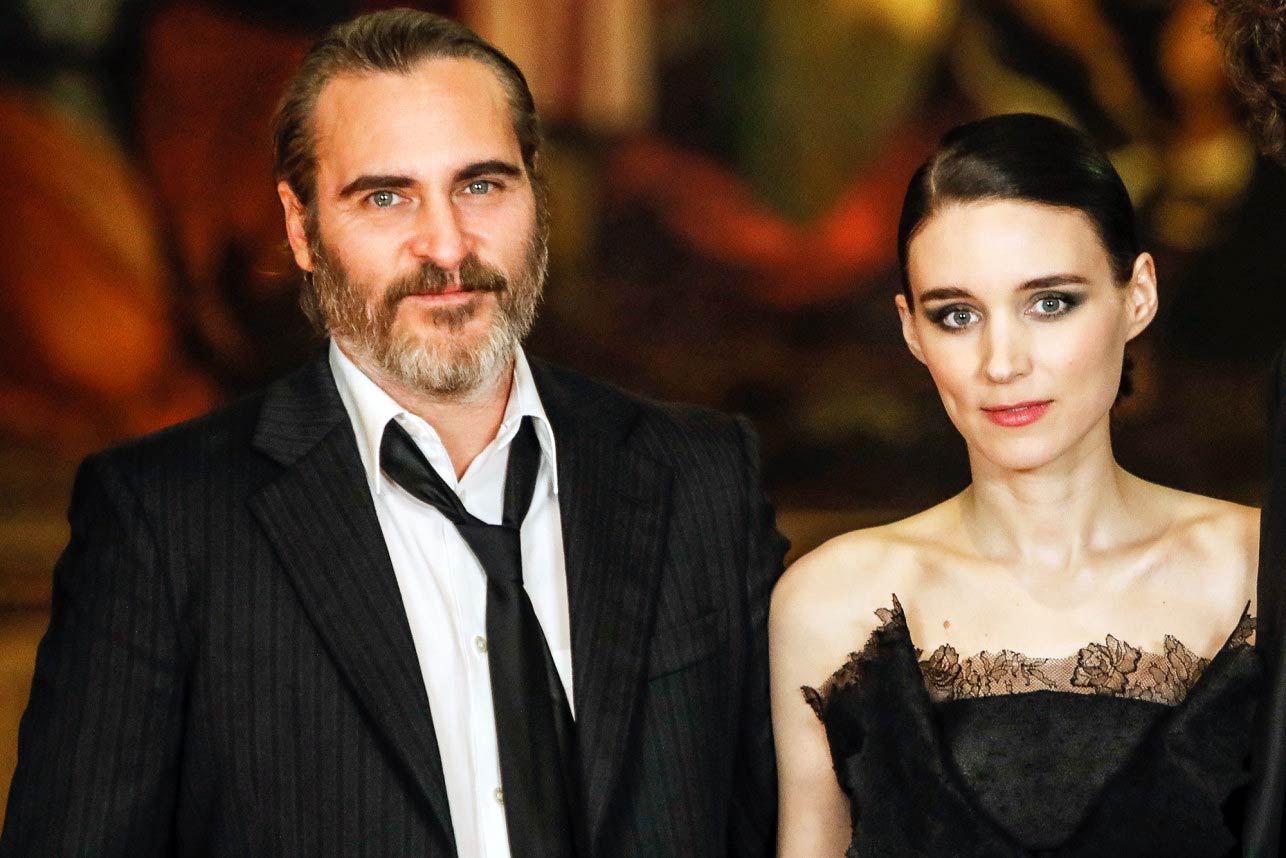
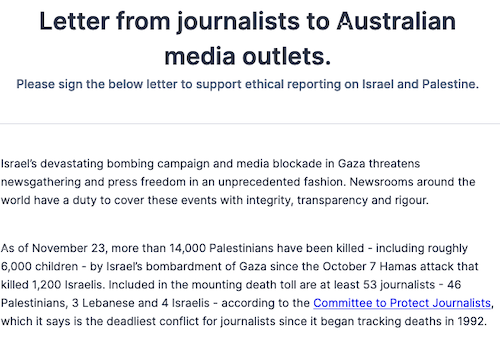
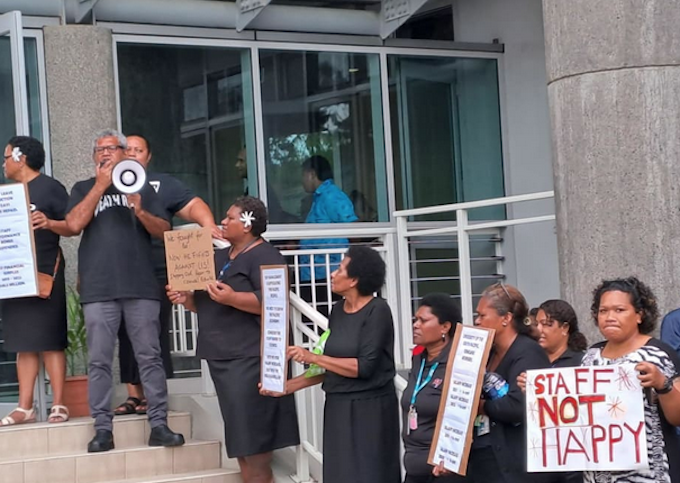

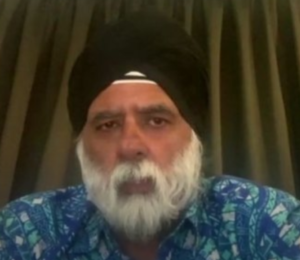
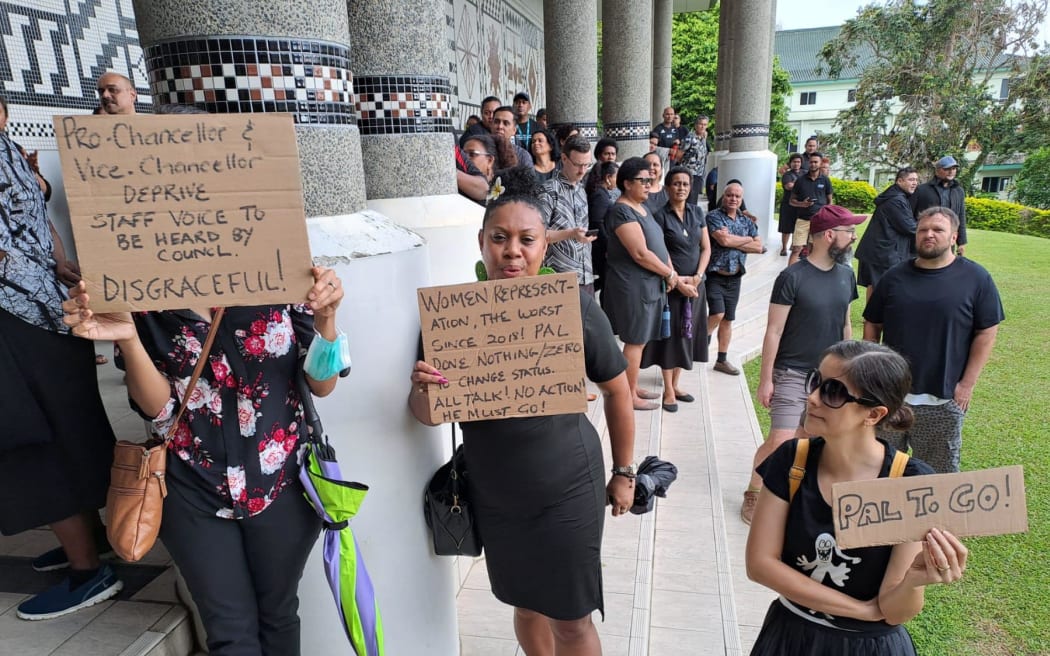

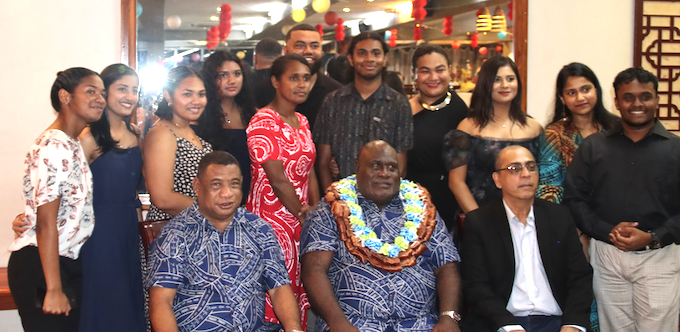
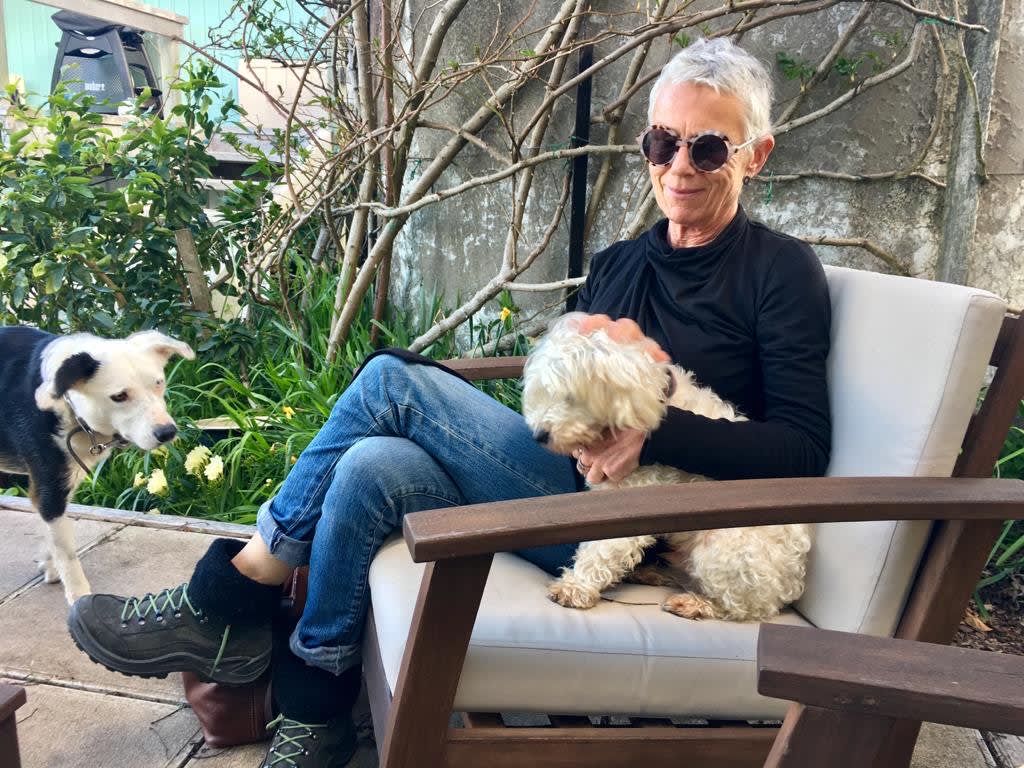


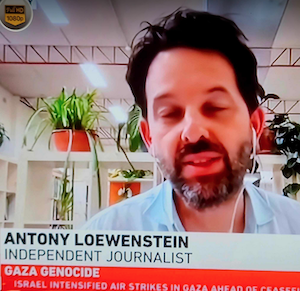
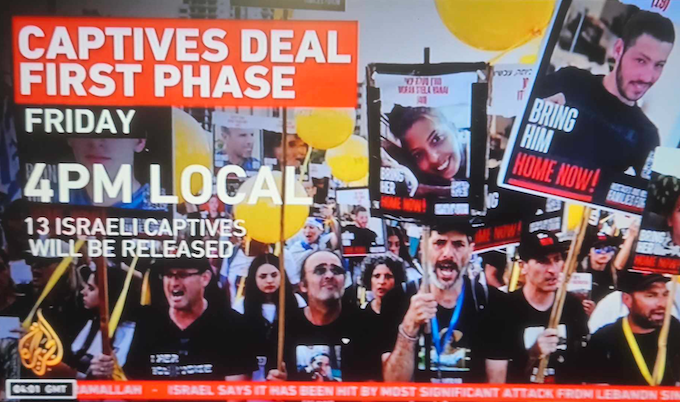
 Loewenstein warned in his book before the conflict began that “an Israeli operation might be undertaken to ensure a mass exodus, with the prospect of Palestinians returning to their homes a remote possibility” (p. 211).
Loewenstein warned in his book before the conflict began that “an Israeli operation might be undertaken to ensure a mass exodus, with the prospect of Palestinians returning to their homes a remote possibility” (p. 211).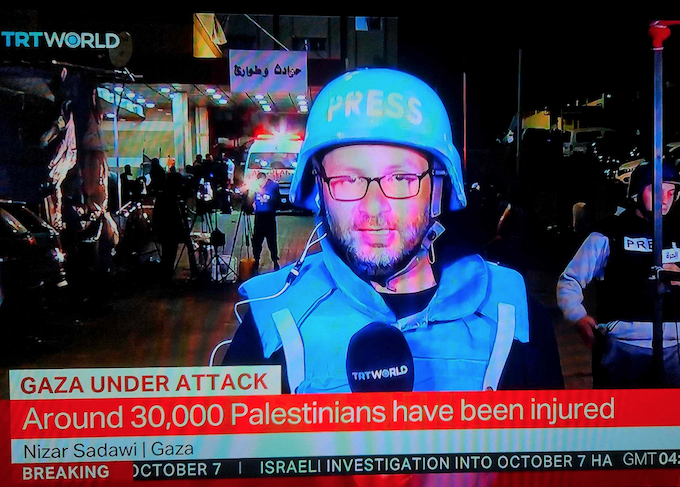




 Veganuary
Veganuary Veganuary
Veganuary

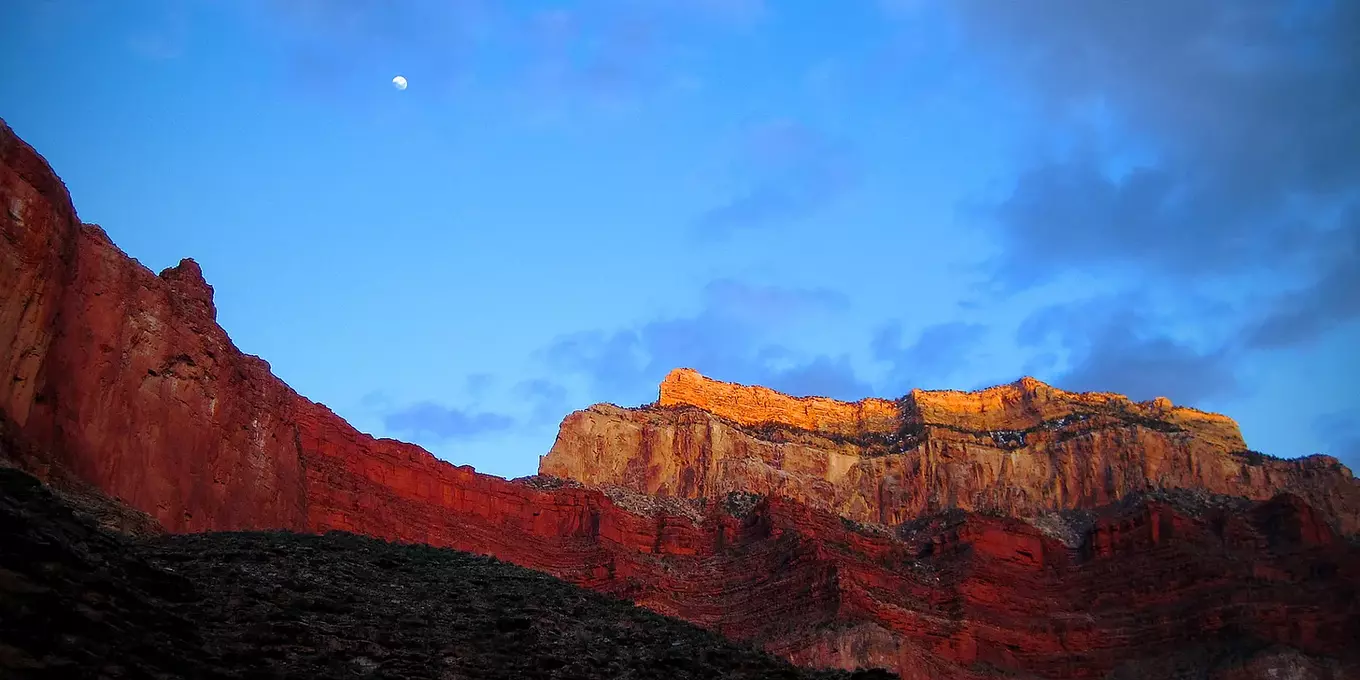





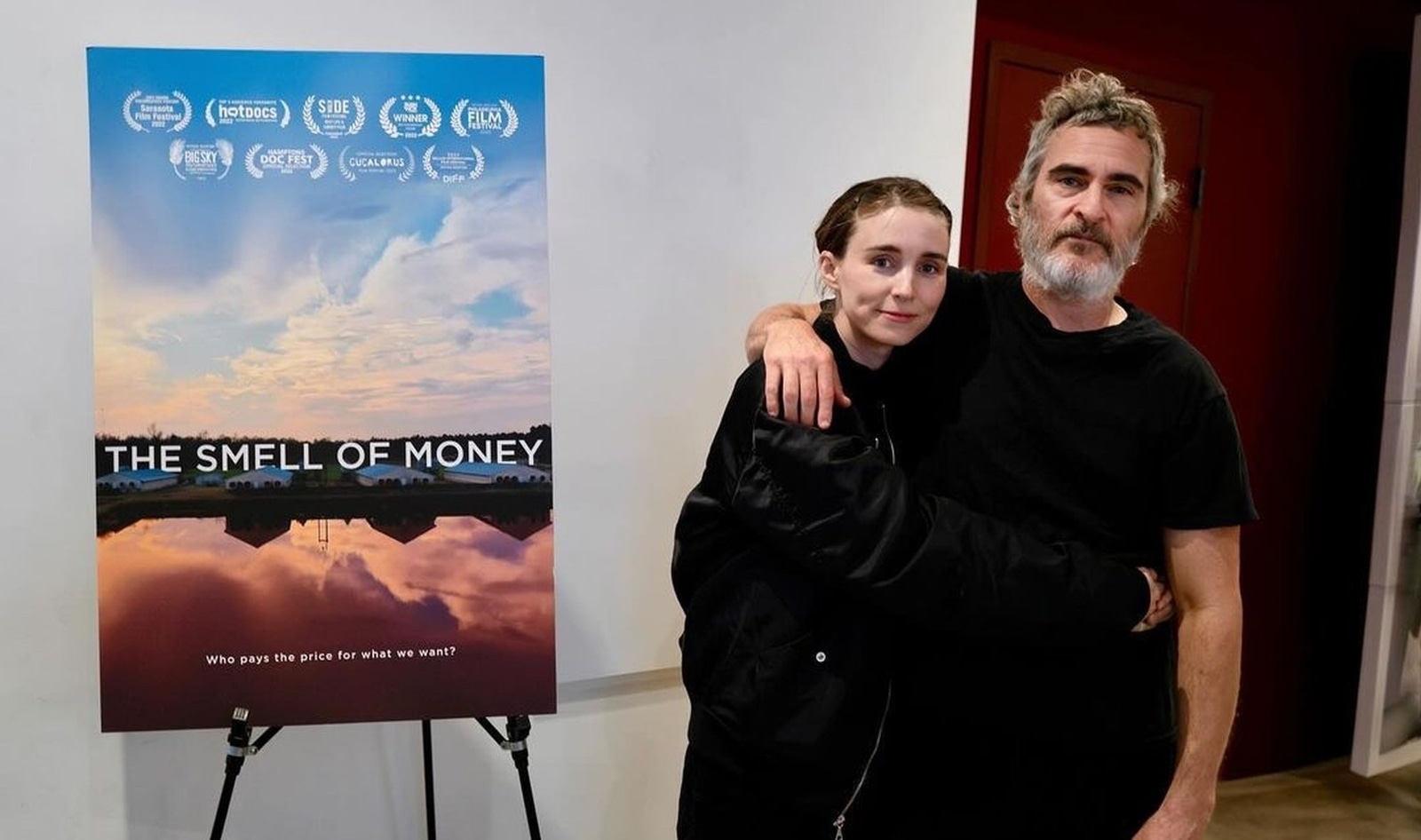
 The Smell of Money
The Smell of Money